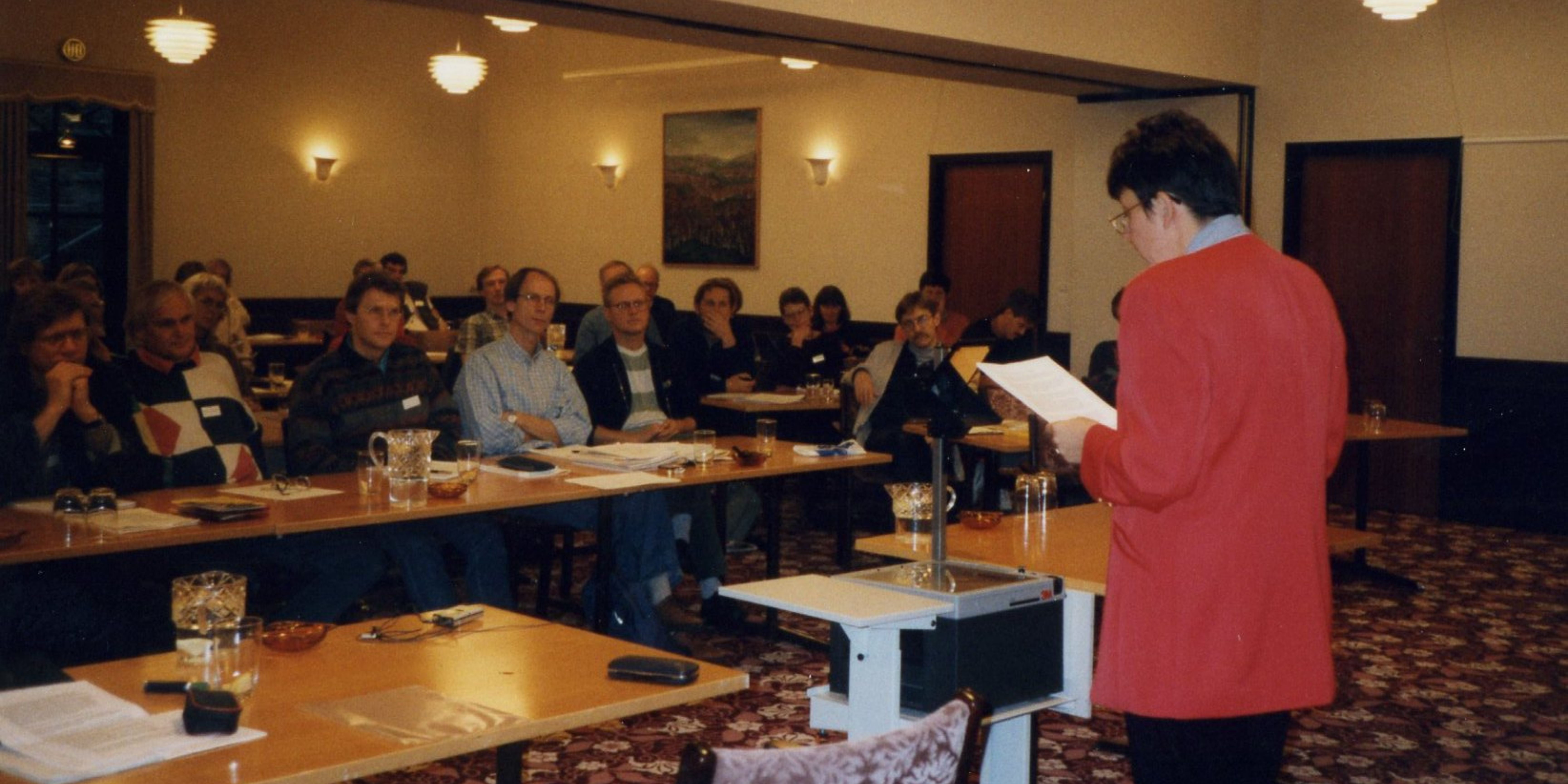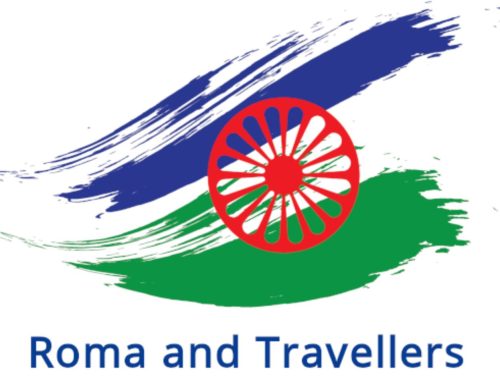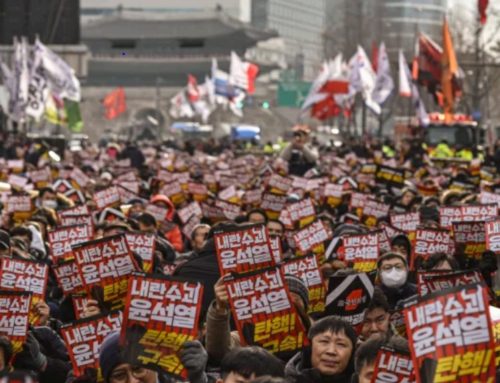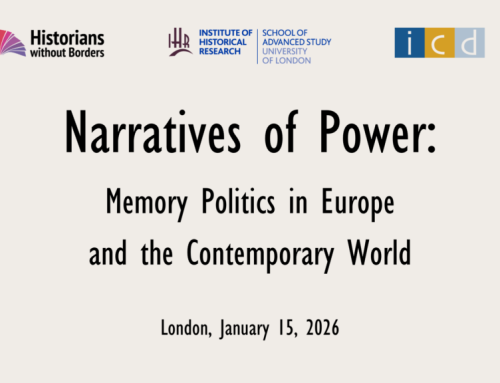This text focusing on EuroClio’s founding is an excerpt taken from a larger document detailing the history of EuroClio, authored and researched by a group of students from Erasmus University Rotterdam: Pearly van Langefeld, Marie-Eve Presber, and Bennet Groen. This article was compiled by Rebecca Jackson.
EuroClio is an international umbrella organisation, operational in 52 countries with 87 member associations in 2021. Its origins can be traced back to the early 1990s, to a time when Europe had to readjust to a new political situation, caused by the fall of the Berlin Wall and the Iron Curtain. The end of state socialism generated the emergence of many new nation-states that had to rewrite and reorganise their history and history education, which was previously based on the socialist ideology.[1] Looking to strengthen the intellectual freedom of the teachers and history, education professionals wanted to build independent Associations of History Teachers in countries where none previously existed. Eastern European countries turned to the West for guidance in the reform of their history education, which in turn made the Western European countries look critically upon their own practices.[2] In the west, change was also happening as educational authorities looked to introduce skill-based education reforms.[3] In these changing times, national history teacher associations in Western Europe looked to strengthen the position of history education in curricula.
At the same time, there were discussions and initiatives on the European dimension in history education between history educators, the European Union, and the Council of Europe. Aims included promoting the European dimension in history teaching without neglecting the global, national and regional dimensions; studying the role of Europe and its relations with the rest of the world, and encouraging the development of a greater European awareness through the medium of history teaching.[4] One such initiative was a conference organised by the Council of Europe in Bruges in December, 1991: “History Teaching in the New Europe.”[5] This conference was the first meeting which was attended by history educators “from almost every European country” involving the newly established democratic countries in Eastern Europe as well.[6]
During this meeting it was decided upon by all the history teachers present that there should be an European association of history teachers, which would concern itself with the task to promote a European dimension in history education in the European schools. The attending history educators were inspired by Maitland Stobart – Deputy Head for the Council of Europe’s Department of Education, Culture and Sport – to create an overarching association.[7] As Joke van der Leeuw-Roord, Chair of the Dutch History Teachers’ Association (VGN) at that time, recalled: “During this conference, European history educators such as myself, felt the need to set up an organisation of history educators which could act, among other things, as an instrument for implementation of the Council of Europe’s work in history.”[8] So it happened that, together with the Secretary of the VGN, Hélène Budé-Janssens, Joke organised the future meeting in Strasbourg to concern itself with the more practical aspects of founding an European Association.
Invitations were sent out in July 1992 to established European history associations to attend the Conference in Strasbourg in November of that year.[9] The Strasbourg Conference was held November 8-10th, 1992. During the conference, the statutes of the new association were drafted and accepted by all participants.[10] These statutes were then to be legalised by the University of Neuchâtel, Switzerland. However, it was discovered later that this had actually never been done.[11] This incident highlights the importance of the context in which EuroClio was founded. Due to the low level of bureaucracy, EuroClio could be founded rather spontaneously.[12] The idea was born at Bruges, and quickly realised in Strasbourg. This spontaneity would have been impossible in the bureaucracy of contemporary times. At Strasbourg the association also established the name European Standing Conference of History Teachers Associations, which had a French equivalent: Conférence Permanente Européenne des Associations de Professeurs d’Histoire as at the time two official languages, English and French, were also decided.[13] These names could not be abbreviated, since the English and French versions would be different. Two Belgian delegates, Robert Lenaerts and Paul Vandepitte, came up with an idea: EuroClio. The name is derived from two figures from Greek mythology: Europa (for Europe) and Cleo (the muse of history).
The following year, April 20-23, 1992, EuroClio saw its first of many annual conferences in Leeuwarden, The Netherlands. Organised with the Council of Europe, the conference was a celebration of the founding of EuroClio and witnessed the first General Assembly. Its theme, “Changing Borders. Europe since 1815,” focused on discussions on the existence of states, nationalism, and (dis)integration.[14] Such an international meeting was newsworthy for the time, and the local paper, the Leeuwarder Courant, reported on it.[15] The conference also focused on educational developments and new teaching materials specialised for Central and Eastern Europe, regions which due to their transition into democratic nations had asked for support from the Western European countries. [16] Since then, EuroClio has organised an Annual Conference every year, even online due a global pandemic. These conferences continue to provide the opportunity for members to discuss new developments and learn from one another.
Notes
[1] Joke van der Leeuw-Roord, “EUROCLIO, a Cause or Consequence of European Historical Consciousness,” EUSTORY Series, Shaping European History Vol. 2, No. 2 History for Today and Tomorrow: What does Europe Mean for School History? (2001): 252.
[2] Van der Leeuw-Roord , 249.
[3] Van der Leeuw-Roord, “EUROCLIO,” 250.
[4] Van der Leeuw-Roord, 249.
[5] “Useful links,” EUROCLIO, Partners, Council of Europe, accessed February 15, 2021, https://www.coe.int/en/web/history-teaching/useful-links.
[6] Van der Leeuw-Roord, “EUROCLIO,” 249.
[7] Van der Leeuw-Roord, “EUROCLIO,” 249.
[8] Van der Leeuw-Roord, 249.
[9] Letter present in the archive of EuroClio.
[10] Interview Van der Leeuw-Roord.
[11] Interview Van der Leeuw-Roord.
[12] Interview Van der Leeuw-Roord.
[13] Document present in the archive of EuroClio.
[14] “Leeuwarden gastheer geschiedeniscongres,” Leeuwarder Courant, March 31, 1993, 21.
[15] “Leeuwarden gastheer geschiedeniscongres.”
[16] Letter present in the archive of EuroClio.













